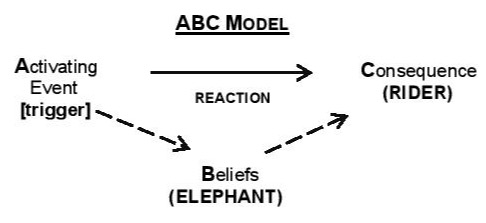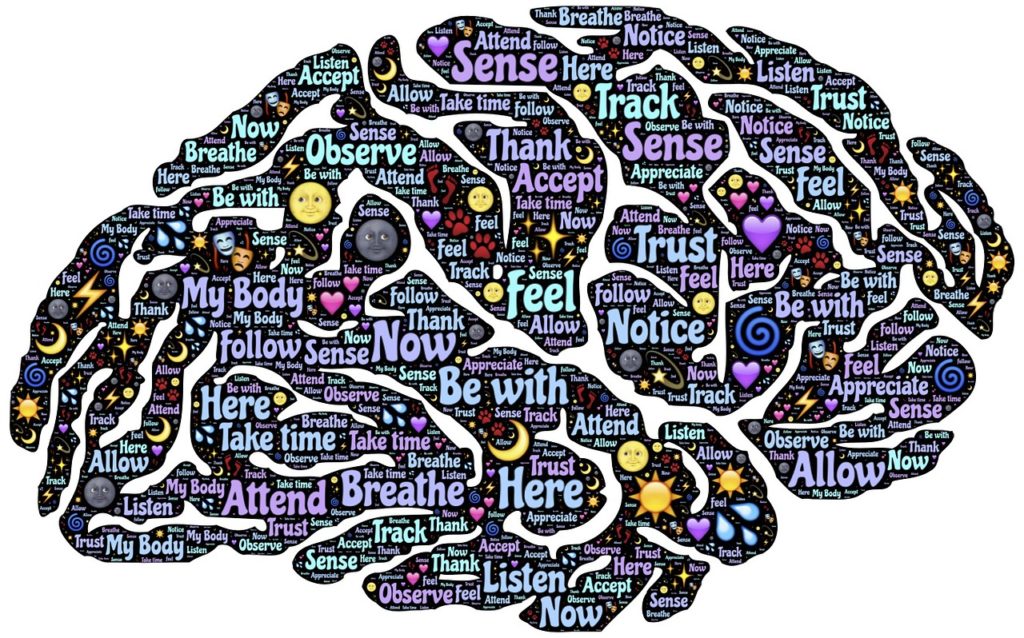Cognitive behavioral therapy (CBT) is a psychological skill…that one can learn to use in processing thoughts and feelings, especially the difficult, painful, and disturbing ones. Recall the ABC Model from the ERM (and shown below) that illustrates how our feelings (emotions) are created and experienced. It starts with a stimulus, or trigger (i.e., “something happens”); and we “automatically” react. This reaction, or consequence, is experienced as an emotion (e.g., joy, anger, sadness) that is usually followed by a behavior (e.g., a smile, harsh words, tears):

CBT comes into play as a method for dealing with consequences that one wants to change. It’s use “begins” when one decides to do just that, as shown here starting with that “Consequence” from the ABC Model:

CBT is used to bring about change, and results in one’s Elephant acquiring New Beliefs as well as a response that leads to a New Consequence, one that is different, and likely more emotionally positive and desirable. Note also that the reaction from the original trigger (in the ABC Model) is something driven “automatically” by your Elephant with no real Rider involvement whereas the response as driven in the CBT process is one, as you will come to see, in which your Rider is very involved.
________
Here is one strategy, having three steps, in learning and using CBT as a problem-solving skill:

________
There is an old truism that says, “To solve a problem, you first have to see the problem.” Step one – Identify – is acknowledging, and this means bringing it to the conscious level for the Rider to see, what the belief you have that was triggered (i.e., threatened, violated, offended, conflicted) by the event. And while it may sometimes seem obvious, oftentimes it isn’t! And even if it does seem “obvious,” the belief may well be worth looking at more closely…for its relevance, applicability, and possibly the relative importance with respect to some other belief.
Step two – Examine – is about learning to argue within the courtroom of your inner being. It’s about using your inner lawyer to take opposing sides and give the observing self, as judge and jury, a better understanding in having that belief and the why you had the reaction you had. Often “the belief” stems from some cognitive distortion that results in having a wrong and erroneous understanding of the reality.
Step three – Reconcile – is deciding if the Elephant needs some “re-training” – as in maybe changing or modifying beliefs…as well as determining how best to move forward – which may involve changing our behavior going forward, problem-mitigation, or acceptance.
Problem-mitigation is reducing the negative effects or impact of the triggering issue; this may involve problem-solving or finding ways to lessen, decrease the frequency or intensity of, or even avoid that triggering situation.
Acceptance is a process, the “using” of another psychological skill…which involves recognizing that “what is” can’t (or won’t) be changed while then directing your conscious effort to focus on doing those things that make your life valued, meaningful, and more rewarding.

